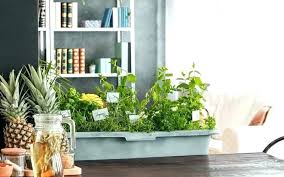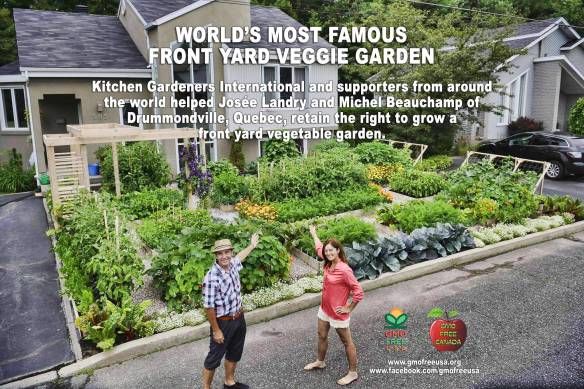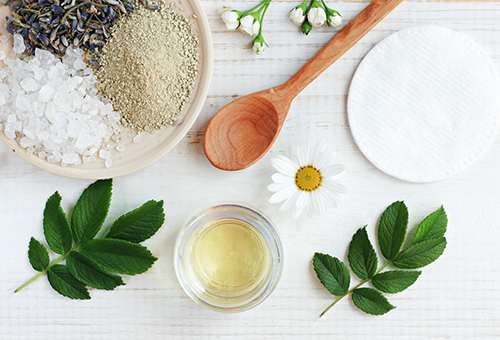Disclaimer: The information on curenaturally.org is intended to improve your knowledge about herbs and their benefits. Articles on this website are not intended to replace medical treatment from your doctor. Always consult your doctor before starting a new treatment regimen.
Published 01.03.2019
How to Grow Organic Fruits and Vegetables
By Dr. Girgis, N.D.

Spring is almost here, and as Iranian Americans, my family will be celebrating the Persian New
Year or Norooz/Nowroz (New day) on the first day of spring. At exactly 17:58:27 PM Eastern
Standard Time on Wednesday March 20, 2019, millions of people around the world will
celebrate the beginning of spring and of the Persian New Year.
Mother earth shakes itself,opens its eyes, and awakens, beautifying nature once again for another year.
As a deep lover of nature, I can’t help but feel excited on this day. I look forward to
listening to the sounds of birds chirping, watching the budding of blossoms, and seeing
fresh leaves sprouting all over. Never mind that I live in Grand Rapids and there is still
snow on the ground (beautiful, but cold).
|
|
|
But, thinking about spring means planning on what we should plant in our little garden.Which brings me back to the subject at hand: how to grow an organic garden. I wrotethis article a few years ago hoping it would start a green & healthy movement right in our own front yards or inside our homes. But interestingly, one of my clients brought tomy attention different rules and regulations. In Florida, Miami Shores Village decided to make changes to its zoning laws. According to the ruling, one can place anything theywant: plastic or metal decorations, trees and shrubs, statues, etc. But the law prohibits vegetables. The homeowners are challenging this rule all the way, but the main reason I want to mention it here is to please make sure you check your neighborhood bylaws before planting a vegetable garden in your own front yard. While planting an organic vegetable garden may not be possible for those of us living in an apartment or smaller home, it certainly should be encouraged and applauded when possible. It has so many benefits and offers the possibility of healthy eating with almost no cost.
|
 |
|
|
|
|
I remember my early days in the United States; I was so impressed with the good-looking shiny and big apples, huge strawberries, and all kinds of fruits that were so
perfectly shaped. However, I was very disappointed with how tasteless they were
despite their perfect looks. Later on I found out the reason: they were not organic.
Eating organic, while encouraged across the board by all health practitioners, is
scrutinized by many as well. Some scientists have even compared organic gardening
with non-organic and concluded that the benefits, while present, do not seem to be
significant (read the Stanford University article here). Additionally, the fact that it is very
expensive discourages many from following the organic lifestyle.
Personally, I am 100% in support of organic gardening. It’s been around for thousands of years, dating back to the Persians, who used compost and natural methods to keep away pests. Indeed, Persians (in various names Medes, Mesopotamia, etc.) were the first ones who started farming, gardening, and pasturing. In fact, the name “Paradise” is derived from reference to Persian gardens.
|

|
|
|
|
|
Organic gardening has been tested for thousands of years. Its health benefits are truly indisputable. Organic food is usually grown without pesticides, using manure and
organic compost instead. To kill weeds, organic gardeners till and mulch the soil, or use
tools to pull them out. Likewise, no synthetic pesticides or insecticides are used in
organic gardens. In other words, no poisoning with cancer-causing round-up or issues
with bioengineered (GMO) food.
If you like to garden, or if you are tired of paying an arm and leg to eat healthily,
start your own garden. Although most places are still far from gardening season, it’s a
good idea to plan your spring gardening now. Here are some suggestions on how you
can grow your own fruits and vegetables with very few expenses, even if you live in the
poorest of neighborhoods:
|

|
|
|
|
|
1. Why not plant your fruits and vegetables in front of your home instead of
flowers? I remember a homeopathic doctor in the Washington, DC area; the
entire neighborhood was doing this thanks to his suggestion. Parsley, cabbages,
thyme, and all kinds of delicious, nutritious herbs could be found in front of their
homes. Try talking to your community associations or neighbors directly, and see
if this could become a possibility. Why not? Imagine how wonderful it would be to
grow as a community and exchange organic herbs/foods with one another. In
Detroit many neighborhoods are growing their own organic gardens and providing produce for local restaurants. They have been so successful that they are even now expanding to providing produce for suburban business in the metro Detroit area.
|

|
|
|
|
|
2. Look for community gardening. Most community gardens are organic
gardening, and the majority of lots go for very cheap. It is not only a great way to
garden, but also creates interactions with your greater community. I know that in
Grand Rapids, MI the pamphlets are mailed in early spring. Have an eye on the
mail, and look into it online. Take your kids with you when weeding or doing any
kind of gardening; it’s a great way to spend family time together and enjoy the
neighborhood and fresh air. Organic gardening got a huge boost while First lady
Michele Obama started planting a vegetable garden at the White House and
encouraged community gardening and healthy eating, especially in low income
neighborhoods.
|

|
|
|
|
|
3. Regardless of how small your place is, there is always a way to grow herbs
and vegetables indoors. It seems it is becoming a trend for some restaurants to
grow herbs inside their own restaurant. Not only do they use them for cooking,
but also arrange them in a decorative way on the wall. There are different
companies that provide planters with sun lamps to help the plants grow. These
are cost effective and do not occupy too much space; you can grow them inside
your own apartment.
In Farsi there is a saying: “a healthy mind resides in a healthy body.” Let’s
work on building both this Persian New Year. By being creative, we can find a
way to make fruits and vegetables affordable to everyone in our community.
Whether in Flint, Detroit, or elsewhere, all we need to do is work together and
find solutions.
When there is a will, there is always a way. Best wishes for your gardening. Keep
sending pictures of your garden and your experiences along the way.
Happy Persian New Year to all nature lovers and all who celebrate and love mother
earth for generously providing a home for the whole human family for thousands of
years. Let’s appreciate Mother Nature this Persian New Year. To learn more about
how to celebrate nature on Persian New Year, please read my article here.
Thank you for visiting www.curenaturally.org .
Thanks,
Ashraf Girgis,ND
|


|
References:
http://growinghope.net/about-us/partners/
http://projectgrowgardens.org/community-gardens/apply-for-a-plot
http://detroitagriculture.net/wp-content/uploads/2016-Plan-Your-Garden_Seeds-Plants-with-Planting-Schedule.pdf
http://detroitagriculture.net/garden-resource-program-2/
http://www.greeningofdetroit.com/
https://www.helpguide.org/articles/healthy-eating/organic-foods.htm/
https://pacificlegal.org/florida-supreme-court-you-cant-grow-vegetables-on-your-
Have Any Feedback For Our Article?
Let Us Know Below
|
|
|
Additional Articles

Herbs & Diabetes
By Dr. Ashraf Girgis ND
Read More |

10 Refreshing Herbs for Rejuvenating Skin This New Year
Read More
|

Herbal Remedies for Natural Pain Relief
Read More |
|
|
|
|